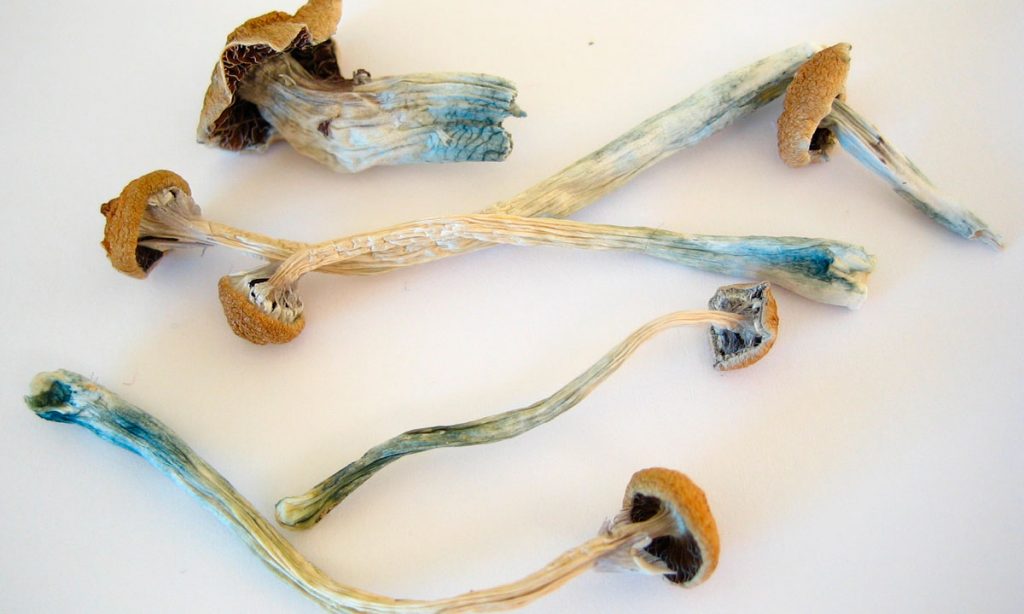A recent study found that psychedelics proved to have a strong effect on nature relatedness, promoting a prolonged appreciation for nature in the two-year follow-up.
The world is hurting right now, and many are feeling the pain of a planet in destruction. We’re dealing with climate change (and climate change denial), forest fires are ravaging homes and destroying nature around the world, and we all know that Mother Nature sure likes to toss a giant natural disaster in there from time to time. Humans have both lost control of and lost touch with their natural environment.
It’s time to get back to nature, and psychedelics may be what get us there.
Researchers in London, England, investigated the association between psychedelic use and a concept they termed “nature relatedness,” or one’s level of self-identification and subjective sense of connectedness with nature.
The study entitled “From Egoism to Ecoism: Psychedelics Increase Nature Relatedness in a State-Mediated and Context-Dependent Manner” was published in December 2019 in the International Journal of Environmental Research and Public Health. The study was conducted at the Centre for Psychedelic Research’s Department of Brain Sciences at Imperial College in London, UK, and was led by Hannes Kettner and Sam Gandy.
While the study wasn’t restricted to one psychedelic, the researchers looked at the “healing and divination purposes” for which substances like DMT, LSD, psilocybin (“magic mushrooms”), mescaline, ayahuasca, iboga, and salvia are used, hypothesizing that the use of these substances, especially in the long term, are strongly correlated to nature relatedness or that feeling of being “one” with our natural environment. The researchers cite “ego-dissolution” as one of the catalysts of this connection between psychedelics and nature relatedness and further hypothesize “a positive effect of natural settings on psychological outcomes following psychedelic use.”
The Methodology
The researchers conducted their study through an online survey, asking people who planned to use psychedelics in the near future to complete a survey. The beginning 634 participants received baseline assessments looking at demographics, psychological well-being via the Warwick–Edinburgh Mental Wellbeing Scale, a nature relatedness scale, and the amount of lifetime psychedelic use.
One day after the psychedelic experience, participants were asked to complete surveys that looked at some pretty incredible things about the human experience. These measures included a mystical experience questionnaire, which assessed positive mood, perceived transcendence of time and space, a sense of ineffability, and mystical feelings as key components of mystical-type peak experiences; the ego-dissolution inventory, measuring acute disintegration of the sense of self; and the challenging experience questionnaire, which includes items about fear, grief, physical distress, insanity, isolation, death, and paranoia.
RELATED: Psychedelic Research Could Provide Answers For Various Psychiatric Disorders
The audio-visual effects of the psychedelics were also measured to understand the extent to which the substance altered sight and perception. Participants were asked to identify whether their psychedelic experience took place in nature, with an additional item measuring to what extent access to nature was perceived to have influenced the overall quality of the experience.

The participants also were invited to complete surveys two and four weeks after the psychedelic experience, and then two years after that, for the researchers to understand the longitudinal effects of nature relatedness. Sixty-four participants participated in the two-year follow-up.
Psychedelics Increase Nature Relatedness
“Our primary hypothesis of increased nature relatedness following a psychedelic experience was confirmed,” concluded the researchers in the Discussion section of the study; the researchers “providing the first empirical evidence for a causative role of psychedelic use in the enhancement of nature relatedness in a large sample of healthy participants.”
Across all participants, psychedelics proved to have a strong effect on nature relatedness, with this sentiment being elevated directly post-use and promoting a prolonged appreciation for nature in the two-year follow-up.
Why Is This Important?
We all know that taking time to be in nature is part of a healthy lifestyle. You can’t deny that taking time to feel the sun on your face, breathe in the smells of nature, and sit still in the quietness of solace stimulates serotonin and makes you feel simply incredible. However, not enough of us take time to connect — truly connect — to our natural environment as a method of healing and self-discovery.
As the authors note, previous researchers have argued that “experiences in natural settings can foster an empathic connection to nature and the humble positioning of one’s self within it, which is less likely to apply to man-made environments.” The authors note that previous accounts of psychedelics in nature represent the opportunity to find “profound levels of identification or merging with the natural world.”
RELATED: Sorry, But Science Doesn’t Favor Microdosing Psychedelics
Other researchers have uncovered that those who use psychedelics within a natural setting experience “dissolution of boundaries and awe-inducing feelings of unity with nature during peak psychedelic effects.” The authors have also observed that even one experience with psychedelics can produce an “enduring” change in one’s perception of nature.
Spending time in nature and its benefits for health have been studied for years, with meta-analyses pooling data from almost 150 studies, looking at 290 million participants, showing that time in nature can have significant physical health benefits, including reduced risk of type II diabetes, cardiovascular disease, premature death, preterm birth and reductions in stress, high blood pressure and cholesterol.

In addition to these physical benefits, exposure to nature also produces incredible mental health benefits, including increases directed-attention abilities, increased attentional capacity and positive emotions, and the ability to reflect on a life problem. Nature exposure has been associated with decreased anxiety, decreased stress, a decrease in rumination, increased vitality, psychological restoration, and enhanced prosocial orientation.
Researcher Conclusions
The researchers conclude that their data “imply a reliable and robust positive association between psychedelic use and nature relatedness” with the correlation between psychedelics use and nature relatedness getting stronger with continued use among nature experience.
They observed increase in nature relatedness correlated with increases in psychological wellbeing, which remained significantly elevated two years after the psychedelic experience. The researchers finally conclude that “these findings point to the potential of psychedelics to induce enduring positive changes in the way humans relate to their natural environments.”
The Way Forward with Psychedelics
The psychedelics industry, as we know it, is relatively new, and some insiders of the psychedelic movement credit cannabis as what paved the way for psychedelics to gain momentum.
Green Market Report has been following the psychedelics movement closely, eagerly watching our friends in psychedelics make amazing strides. Late last year, we reported on Field Trip Ventures, co-founded by cannabis industry veteran Ronan Levy, which announced that they’d be opening a psychedelics research center in Jamaica. We also reported on Orthogonal Thinker, who had announced a capital raise of $4 million to help bring psilocybin to more people.
We are yet to see a projected worth of the emergent psychedelics industry, but if the buzz is any indication, this new industry is one to get in on while it’s just beginning to take hold.
This article originally appeared on Green Market Report.


